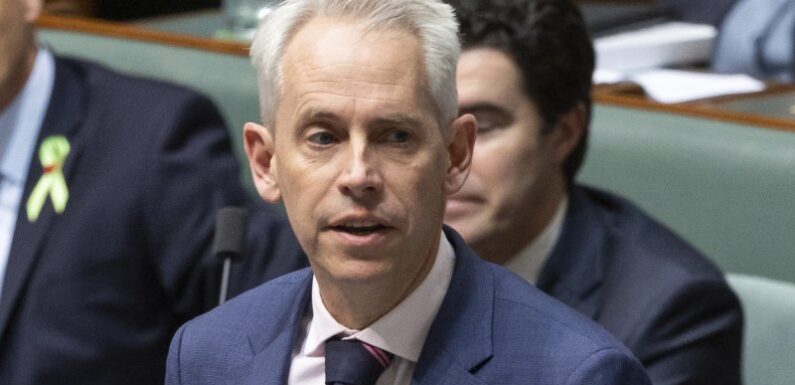
Save articles for later
Add articles to your saved list and come back to them any time.
Up to 92 people, including some who have been convicted of violent offences, will be released from detention within days as the federal government scrambles to comply with a major court decision upending two decades of immigration law.
The High Court this week ruled the indefinite immigration detention of non-citizens who can’t be deported is illegal, leaving officials to arrange the release of relevant detainees, with temporary visas involving strict oversight conditions to be handed to a cohort that includes sexual offenders.
Immigration Minister Andrew Giles says the government is working to release other applicable detainees.Credit: Alex Ellinghausen
The plaintiff in the High Court decision – a stateless Rohingya man who the government was unable to deport after he had been paroled for raping a 10-year-old boy – has already been released on strict conditions, Immigration Minister Andrew Giles said in a statement on Friday.
“Other impacted individuals will be released, and any visas granted to those individuals will be subject to appropriate conditions,” Giles said.
The Coalition accused the government of being unprepared to respond to the judgment after Labor ministers said the government would need to digest the reasons for the High Court’s decision before determining the implications for detainees.
Opposition home affairs spokesman James Paterson told Sky News on Friday the government should have already investigated all legal alternatives to the ruling to be ready to introduce new laws into the Senate this week.
“But really anything that they can do to protect the community is necessary, and I just don’t have confidence in the government being on top of this,” Paterson said.
Solicitor-General Stephen Donaghue, KC, told the High Court this week the cohort featured convicted murderers, sex offenders and people smugglers, and overturning the ability to indefinitely detain people would allow entry into Australia for those with such bad character that every other country rejected them.
“The more undesirable they are, such that the more difficult it is to remove them to any other country in the world, the stronger their case for admission into the Australian community,” he said.
Senate question time on Friday featured multiple opposition questions over how the government would handle the dilemma.
Agriculture Minister Murray Watt, representing Giles in the upper house, said “the full scope of the impact will not be apparent until we receive the High Court’s written reasons, and we receive further legal advice on the basis of those reasons”.
“We are now working through each case to determine the impact of the order,” he said. “The government will be working closely with states and territories to ensure that community safety remains paramount following the release of any individuals whose cases are affected by this decision.”
Cut through the noise of federal politics with news, views and expert analysis from Jacqueline Maley. Subscribers can sign up to our weekly Inside Politics newsletter here.
Most Viewed in Politics
From our partners
Source: Read Full Article
